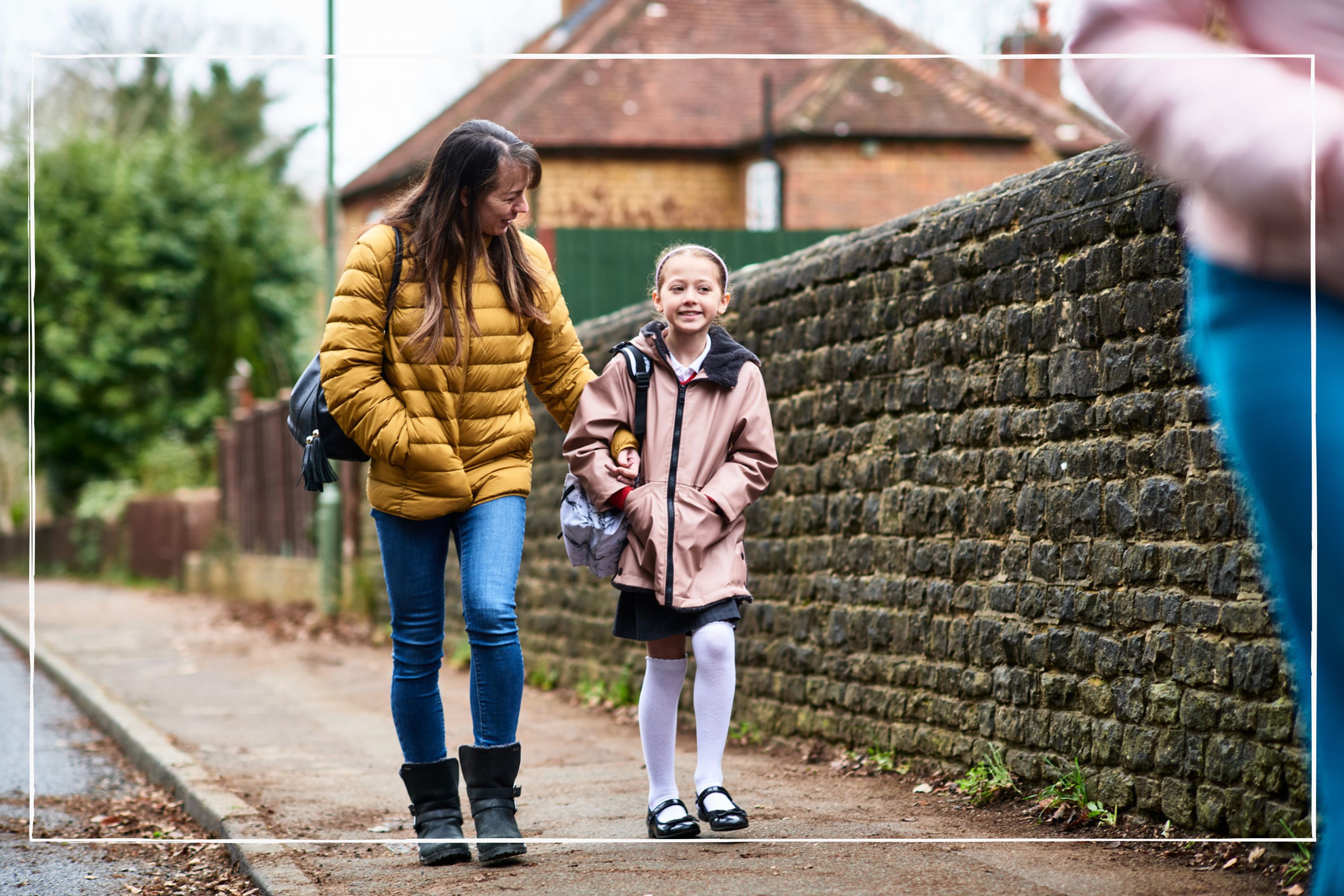Child benefit rule change could see half a million parents boost their pension pots by £10,000s - here's what we know so far
The move will see qualifying parents and carers able to apply for National Insurance Credits they missed out on when they stopped claiming child benefit

Parents and carers could see themselves thousands of pounds better off in retirement as part of a wave of measures introduced by the Government to simplify and modernise the tax system. It involves a change to child benefit rules that would allow eligible parents and carers to claim National Insurance Credits for the years they weren't claiming child benefit, to ensure they maximise their state pension eligibility. The new rules are set to come into force in 2026.
Child benefit is paid to eligible parents and carers to help them with the cost of raising a child. It's currently paid at a rate of £24 a week for the first child and £15.90 for any subsequent children, but child benefit is due to increase in April 2024, to £25.60 per week for the first child, and £16.97 for any subsequent children.
By claiming child benefit, parents can earn National Insurance Credits which help to build up their entitlement to the state pension (you need 35 years of credits to be eligible for the full state pension). However, some parents who earn over the £50,000 threshold stop claiming the benefit as they find themselves facing a high income child benefit charge, which effectively means some of the child benefit has to be repaid. This charge is equivalent to 1% of every £100 you earn over £50,000 and means that once your income is over £60,000 you (or your partner) are effectively repaying all of your child benefit.
According to the Government, half a million parents had stopped claiming Child Benefit since the High Income Child Benefit Charge was introduced. But by not claiming child benefit, and earning those National Insurance credits, parents could find themselves losing out on potentially tens of thousands of pounds in their state pension. The Mirror has reported that this figure could be as high as £66,000.

The government first proposed this rule change back in April 2023, stating that it 'recognises concerns that some eligible parents who have not claimed Child Benefit could miss out on their future entitlement to a full State Pension. The government will address this issue to enable affected parents to receive a National Insurance credit retrospectively.'
But now new details have been released, stating that the government will legislate to introduce a way that eligible parents and carers will be able to apply for the National Insurance credits they missed out on. The government says: 'As announced on 27 April 2023, the government will legislate to introduce a route for people to apply for National Insurance Credits for parents and carers for tax years where they have not claimed Child Benefit, to ensure that people do not miss out on their State Pension entitlement. The credit will add qualifying years of National Insurance where eligible which will support future State Pension eligibility.'
But qualifying parents will have to wait quite a while before they can claim any missing National Insurance Credits as the changes aren't due to come into force until the 2026/27 tax year, which starts in April 2026. While this might sound like worrying news, those who qualify will be able to backdate their claims all the way back to 2013.
GoodtoKnow Newsletter
Parenting advice, hot topics, best buys and family finance tips delivered straight to your inbox.
If you are a new parent, and haven't yet applied for child benefit, good news if you can benefit from a major change to the application process, that will see you get your money sooner. Those planning to start or expand their family should also check what happens to their pension while on maternity leave and understand average childcare costsso you can plan your finances accordingly.
Sarah is GoodtoKnow’s Money Editor. After Sarah graduated from University of Wales, Aberystwyth, with a degree in English and Creative Writing, she entered the world of publishing in 2007, working as a writer and digital editor on a range of titles including Real Homes, Homebuilding & Renovating, The Money Edit and more. When not writing or editing, Sarah can be found hanging out with her rockstar dog, getting opinionated about a movie or learning British Sign Language.
-
 How to save money: 28 family-friendly money-saving tips for mums and dads
How to save money: 28 family-friendly money-saving tips for mums and dadsUnderstanding how to save money is key to limiting the impact of rising costs as much as possible
By Sarah Handley
-
 14 hidden benefits of your Amazon Prime membership
14 hidden benefits of your Amazon Prime membershipWe reveal the less-obvious perks of a Prime membership that will help you get the most value out of your subscription fee
By Rachel Wait
-
 14 surprising ways to spend your Tesco Clubcard vouchers - from restaurants and cinema passes to mini breaks and Disney+
14 surprising ways to spend your Tesco Clubcard vouchers - from restaurants and cinema passes to mini breaks and Disney+Tesco Clubcard vouchers can help you cut the cost of everything from groceries and travel to days out and cinema tickets
By Heidi Scrimgeour
-
 How to get Disney+ for free and save up to £79.90 a year
How to get Disney+ for free and save up to £79.90 a yearEven though the streaming giant ended its free trial offering, there are still multiple ways you can get Disney+ for free for up to 12 months
By Sarah Handley
-
 Parents of teens who have just taken their GCSEs urged to check child benefit status ahead of August deadline
Parents of teens who have just taken their GCSEs urged to check child benefit status ahead of August deadlineWith a child benefit deadline looming, some parents could see their payments reduced or stopped altogether - here's why
By Sarah Handley
-
 Parents should hold off buying this back to school staple 'as close to their first day as possible', says retailer
Parents should hold off buying this back to school staple 'as close to their first day as possible', says retailerWith parents turning their attention to kitting their kids out for the new school year, research suggestions which items should be left until the last minute
By Sarah Handley
-
 7 ways to save on back to school essentials, as its revealed parents will spend £2.3 billion in 2024
7 ways to save on back to school essentials, as its revealed parents will spend £2.3 billion in 2024We share ways you can get your child all the bits and bobs they need for the new school year, without breaking the bank
By Sarah Handley
-
 What day is child benefit paid around the bank holiday? Everything parents need to know
What day is child benefit paid around the bank holiday? Everything parents need to knowKnowing which day child benefit is paid when it comes to the bank holiday can help families plan their budgets accordingly
By Sarah Handley